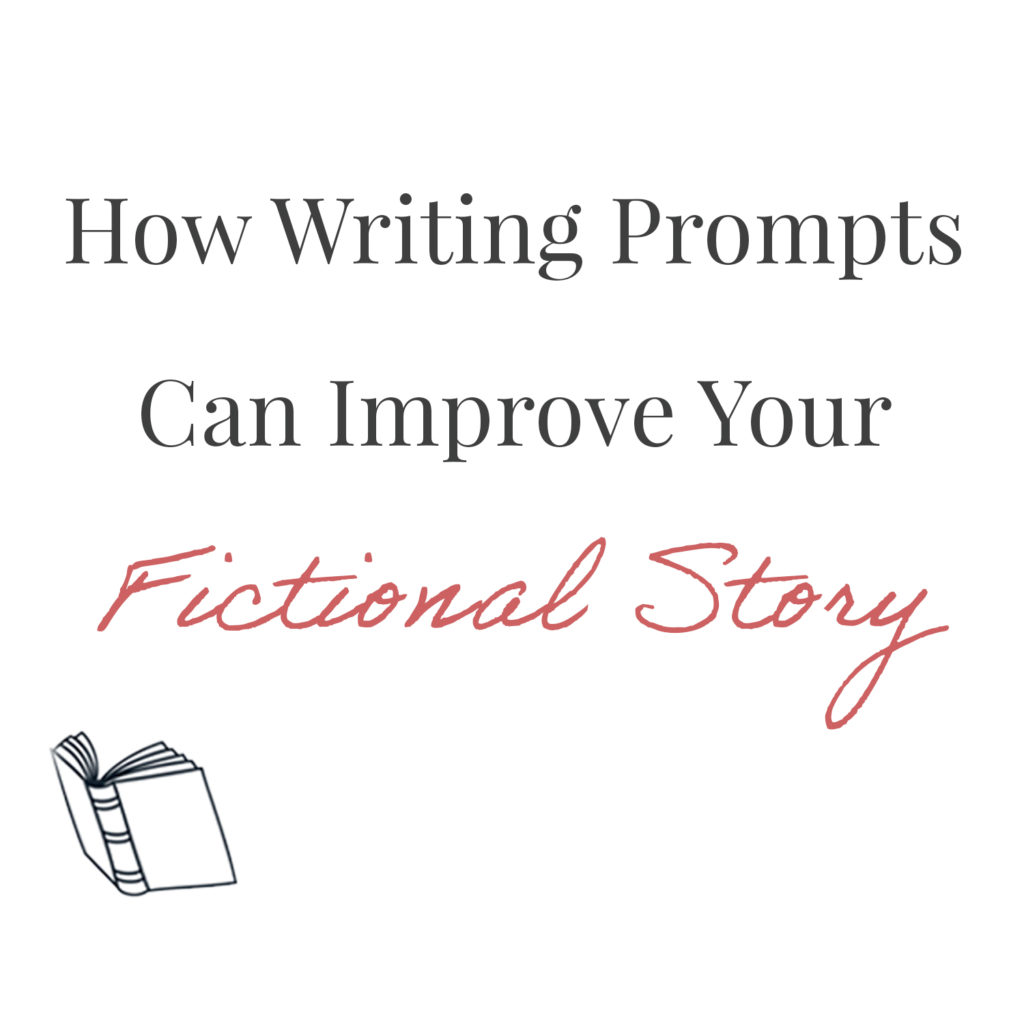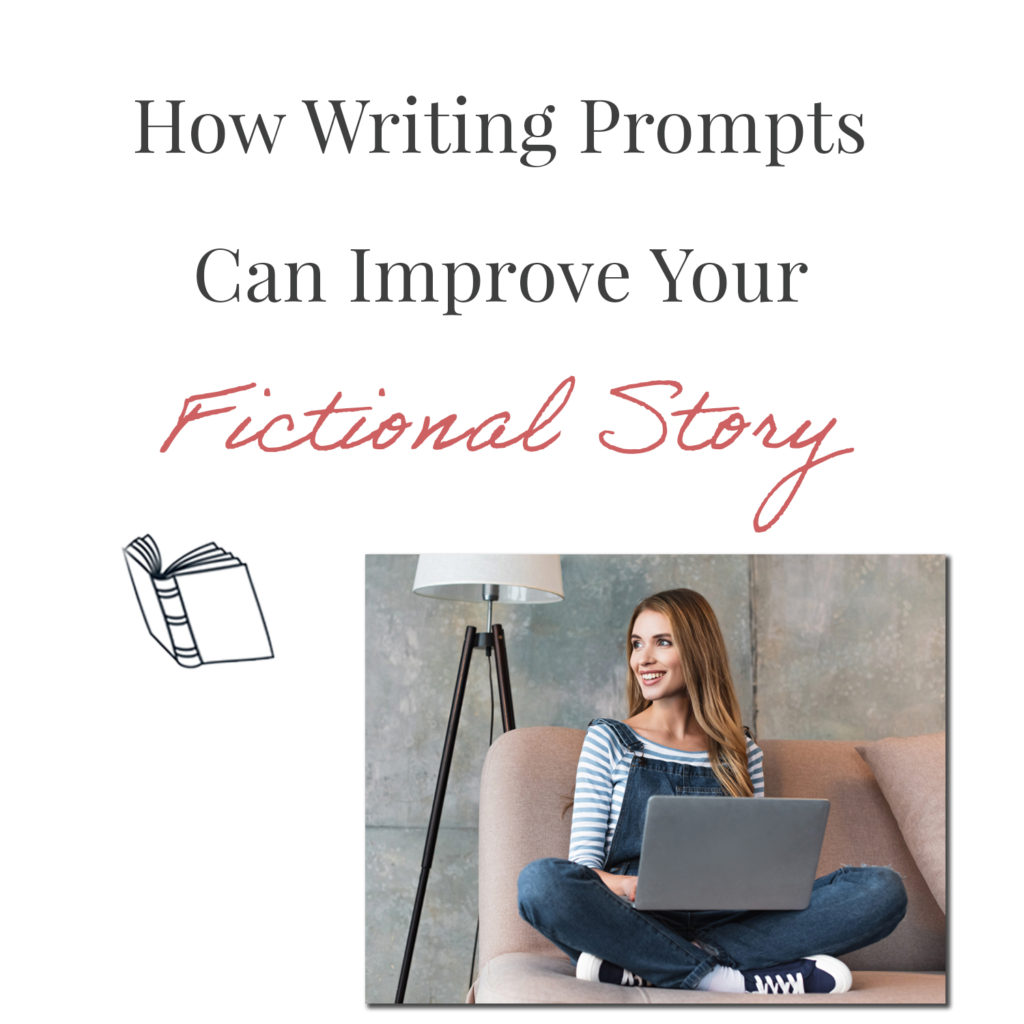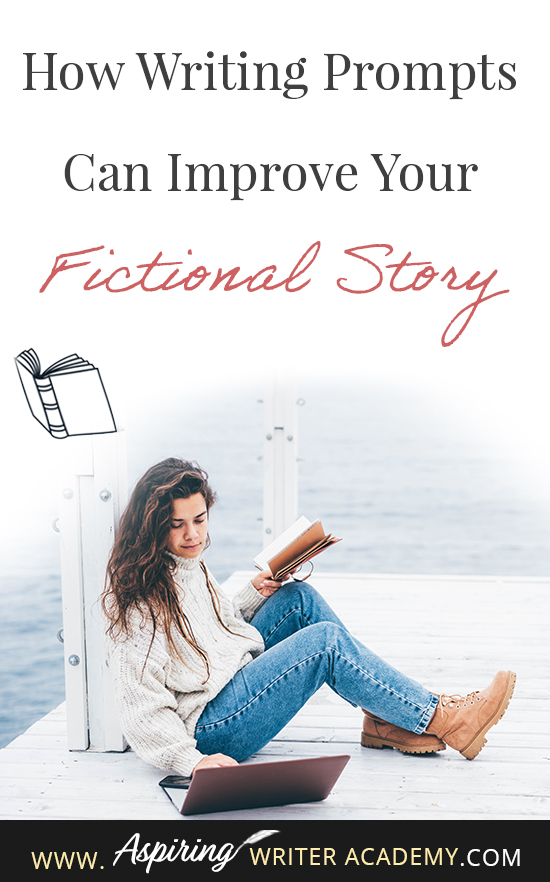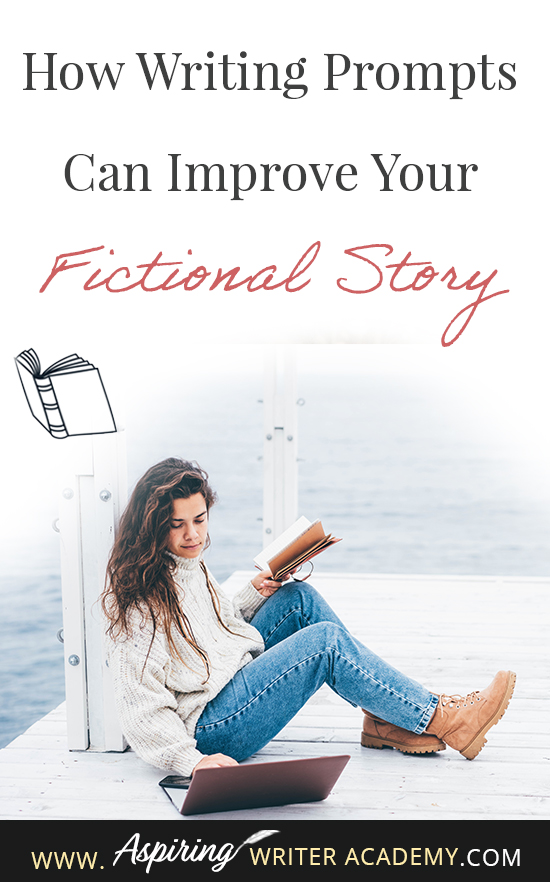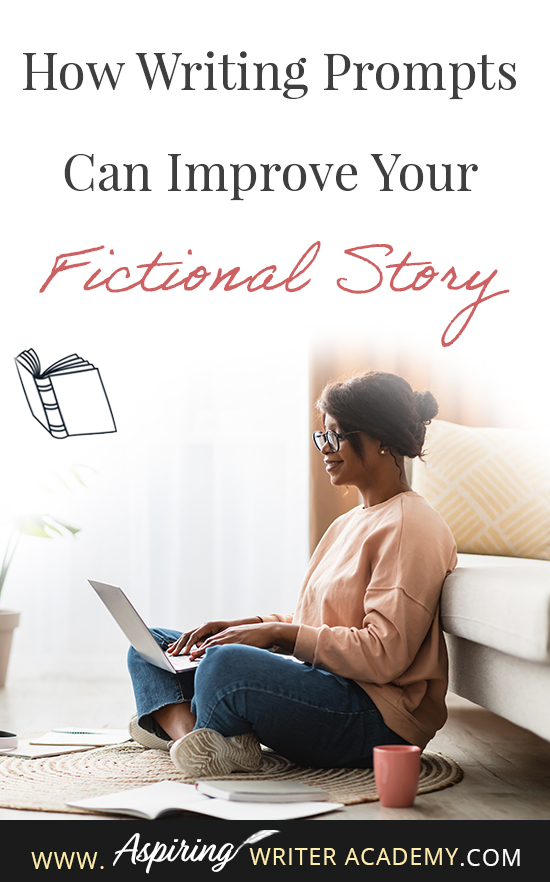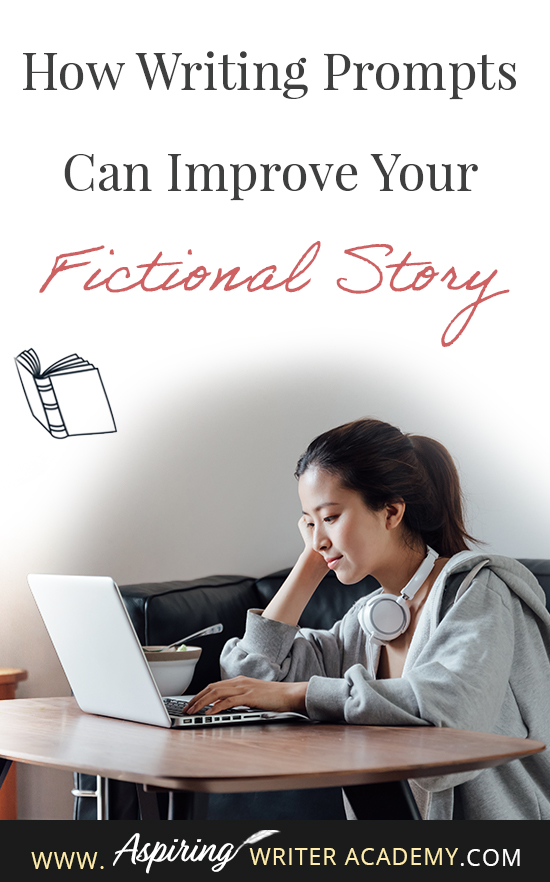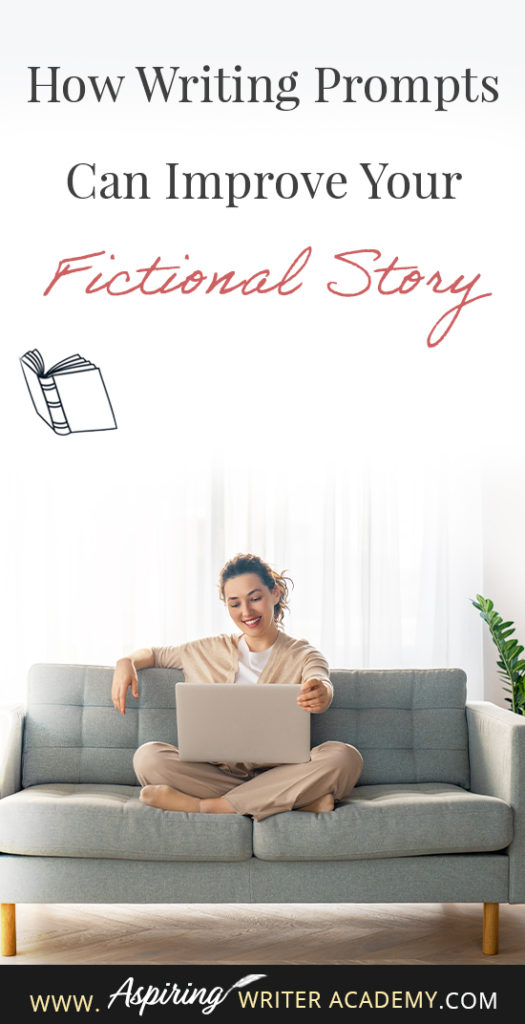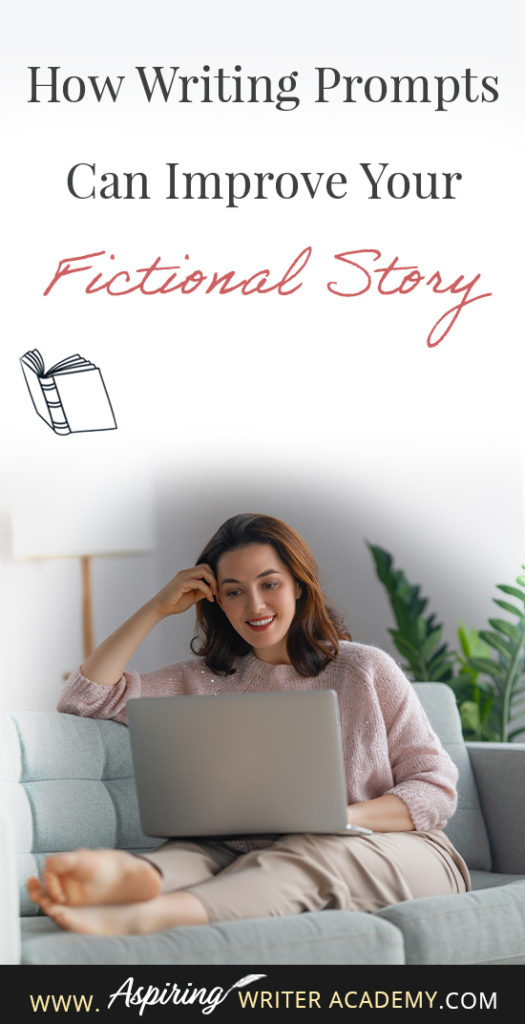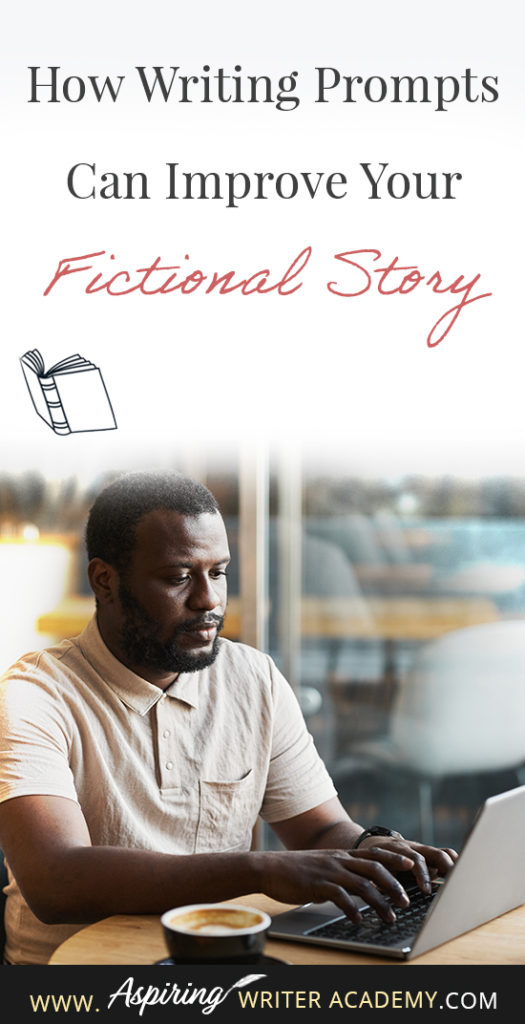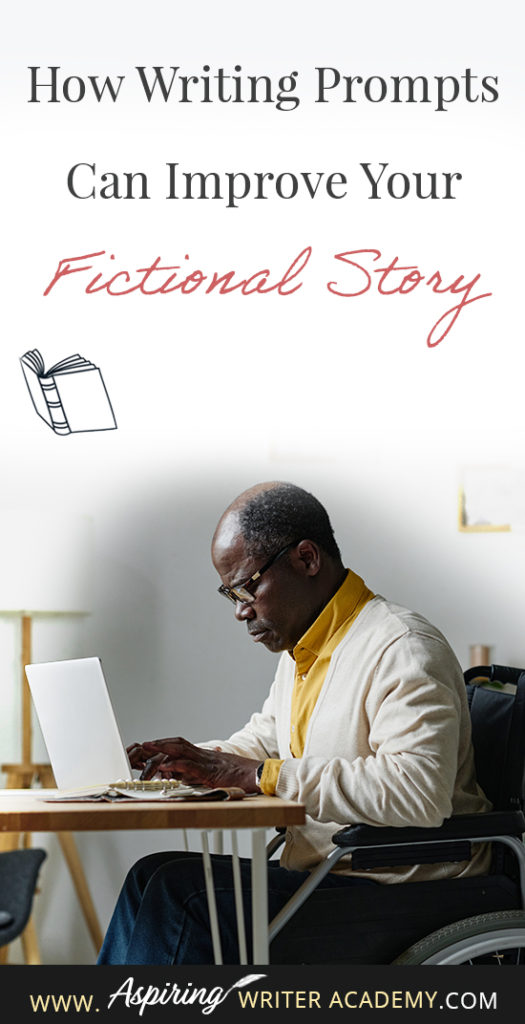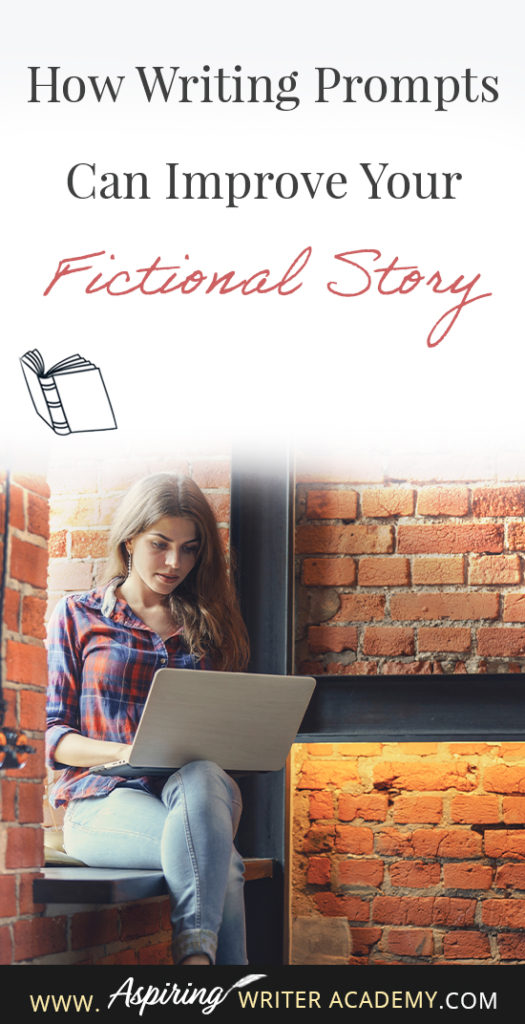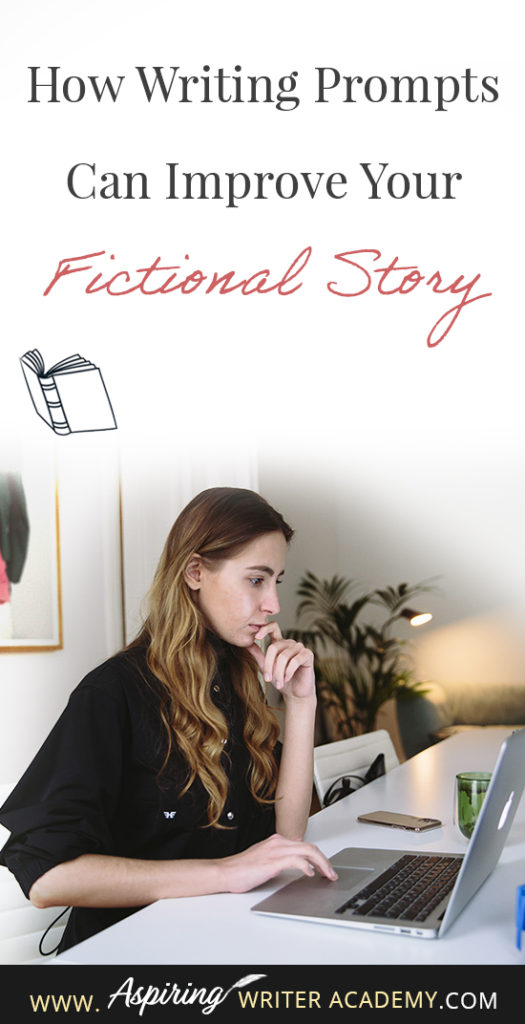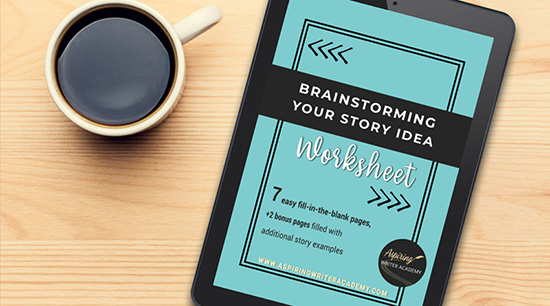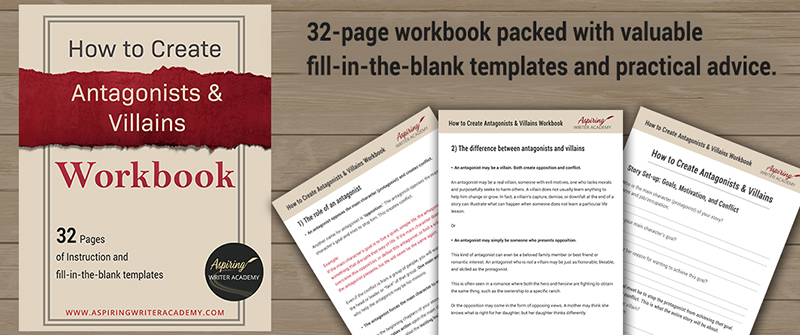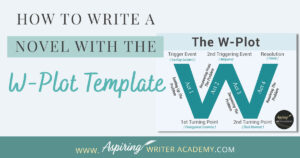How Writing Prompts Can Improve Your Fictional Story

Some writers may love writing prompts while others think they are a waste of valuable time. Time better spent working on their story.
But what if a few quick specific writing prompt sessions could help you brainstorm plot holes, deepen point-of-view, sketch upcoming scenes, and supercharge character dialogue?
In How Writing Prompts Can Improve Your Fictional Story, we show how these fast sprints can boost motivation, improve writing skills, and enhance your fictional novel.
In the post below we will discuss:
1) Writing Prompt Basics
2) Using Prompts to Boost Your Work-In-Progress
3) Writing Prompt Exercises to Get You Started
My first real introduction to creative writing was in 5th grade. The teacher handed everyone their own multi-page color booklet of writing prompts. Each page contained unique photos of animals, people, and mysterious settings, and lines to write a brief story or a few ideas about each one.
I treasured the booklet as something precious and beautiful, and I was afraid to write on the pages inside for fear of messing it up. (Emerging perfectionist!) So, I wrote my ideas on a separate piece of paper. And as I gazed at the pictures, I would let my imagination take flight.
The writing prompts invited me into a world of creativity, awe, and wonder, and I’ve been writing ever since.
Now, as a career author with impending deadlines, instead of engaging in random writing prompts, meant to inspire creativity, I like writing prompts that help me work on my story.
Because writing prompts are short, fast-written segments, I can do one in the notes app on my phone while waiting in line at stores, or while waiting at doctor’s offices for appointments. I can do a writing prompt when riding as a passenger in a car, train, or bus. Sometimes when my internet is slow, I can do a writing prompt while waiting for my laptop to turn on.
So many writers struggle to ‘find time to write.’ But how many minutes a day do you spend waiting for something when you could have been making forward progress on your story?
Even 5 to 10 minutes can make a huge difference!
1) Writing Prompt Basics
You can set a timer or work at your own pace.
If you plan to engage in writing prompts on a regular basis, keep a folder with various prompts printed out so you can start right in at a moment’s notice. Or keep a listing of various prompts on a ‘notes’ app on your phone or tablet.
When stuck on your story, a writing prompt may help spark your creativity and help you break through writers’ block. Sometimes writers need to take a break and work on something different to bring forth new ideas.
Or do a quick prompt before getting into your real writing for the day. Stimulate your brain so it’s in a creative flow. Then, go work on your novel.
Use a writing prompt to keep your writing skills sharp even when you can’t work on your novel. Lunch breaks, work breaks, while riding the bus, waiting for an appt. Most prompts only take 5 – 15 minutes time.
Participate in quick writing prompts with a critique group, writing buddy, group, or class. The more the merrier and a group setting may help inspire everyone as well as build community.
2) Using Prompts to Boost Your Work-In-Progress
How can writing prompts help you make forward progress on your own story?
The key is to have a handy list of specific questions or ideas that need fleshing out. You may want to explore just one question or brainstorm several that relate to one another, depending on how much time you have.
Take a few minutes at the beginning of the week to make a list (your personal writing prompts) that you can brainstorm in bite-sized pieces throughout the week.
Then when you have more time to write, you can dig these writing prompt exercises out and see how you can incorporate the material into your manuscript.
This will help your project move forward faster and may even enhance your daily wordcount.
Example: Writing Prompt on “Setting”
Pick a setting in your novel, and describe what is unusual about this place? Who comes here? What is the history of this place? Are there any local legends? Why is this setting important to your novel? What impact does this place have on your characters?
Write about a character who sees this place for the first time and list details using the 5 senses. What can this character see, hear, smell, taste, or touch? How does this place make this character feel and why?
Or if you are writing a mystery, where are 10 different places a person could hide a weapon or a clue in this setting?
Example: Writing Prompt on “Characters”
Pick a character in your story who needs a little more development. Who is this character? What is their profession? What do they do each day?
What is their morning routine? How do they dress? Who does this character like and dislike—and why? What is this character’s favorite pastime? His most unusual quirk or habit? Does this character have any pets?
How do they feel about their role in this story? What happened in this character’s past that he can’t forgive or forget? What secret wounds does he still carry from that time? How does it affect who this character is today?
Example: Writing Prompt on “Plot”
Think about an upcoming scene in your story and brainstorm 20 different things that could possibly go wrong for your character in this scene.
How would your character react in each situation?
What will your character decide to do next? Explore 10 options your character can pursue to try to achieve his goal or make his current life situation better.
How can your character achieve his goal for this scene but come away with consequences that ultimately make his life worse than before?
Who can oppose your character in this scene? What are 5 different ways this antagonist could try to stop your character from getting what he wants?
Or if the villain is chasing your character down a dead-end street, what are 7 different tactics your character could possibly employ to try to escape?
Example: Writing Prompt on “Dialogue”
Pick a scene where there are two or more people and sketch their conversation. Do not include dialogue tags like ‘he said, she said’ or action beats. Only the dialogue.
What do they argue about? What do they keep secret from the other? How can one character surprise another character or throw him for a loop?
Tom – “What were you doing at the lake last night?”
Mary – “None of your business.”
Tom – “I’m making it my business. If you and I are going to work together, I can’t have you meeting clients behind my back.”
Mary – “Who says I was meeting a client?”
Tom – “A love interest then?”
Mary – “Jealous?”
Tom – “Hardly. More worried for your safety than anything else. There’s been rumors of a serial killer hiding around these parts and it wouldn’t do for me to lose you before we finish designing the Anderson housing project.”
And so on. What parts of the conversation are exciting and worth keeping? Which parts can be tossed out? To spark creativity, write fast without much forethought and just see what comes out on the page. You can always revise and edit later.
3) Writing Prompt Exercises to Get You Started
Where do you find additional writing prompts? Search Google on the internet and you can find a ton! Below, we’ve listed 7 fabulous websites with free writing prompts to unlock your creativity and inspire your writing:
1) https://blog.reedsy.com/creative-writing-prompts/
2) https://www.writersdigest.com/be-inspired/creative-writing-prompts-for-writers
3) https://thinkwritten.com/365-creative-writing-prompts/
4) https://thewritepractice.com/creative-writing-prompts/
5) https://www.prodigygame.com/main-en/blog/writing-prompts-for-kids/
6) https://www.creative-writing-now.com/short-story-ideas.html
7) https://www.writtenwordmedia.com/500-writing-prompts-to-help-beat-writers-doubt/
I hope you have enjoyed reading, How Writing Prompts Can Improve Your Fictional Story, and have discovered how a few minutes of targeted sprints can help you improve different aspects of your writing without wasting your time.
If you would like additional help, you may want to download our Free Brainstorming Your Story Idea Worksheet.
Do you find it difficult to create compelling antagonists and villains for your stories? Do your villains feel cartoonish and unbelievable? Do they lack motivation or a specific game plan? Discover the secrets to crafting villains that will stick with your readers long after they finish your story, with our How to Create Antagonists & Villains Workbook.
This 32-page instructional workbook is packed with valuable fill-in-the-blank templates and practical advice to help you create memorable and effective antagonists and villains. Whether you're a seasoned writer or just starting out, this workbook will take your writing to the next level.
If you have any questions or would like to leave a comment below, we would love to hear from you!
Our Goal for Aspiring Writer Academy is to help people learn how to write quality fiction, teach them to publish and promote their work, and to give them the necessary tools to pursue a writing career.
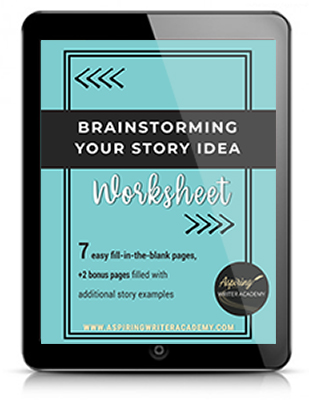
ENTER YOUR EMAIL BELOW
TO GET YOUR FREE
"Brainstorming Your Story Idea Worksheet"
7 easy fill-in-the-blank pages,
+ 2 bonus pages filled with additional story examples.
A valuable tool to develop story plots again and again.
Other Blog Posts You May Like
Creative Writing: 5 Ways to Strengthen a Weak Fictional Character
Fiction Writing: Create a Storyboard to Map Out Your Scenes
Fiction Writing: How Specific Details Can Bring Your Setting to Life
How to Spot Publishing Scams & How To Avoid Them
5 Common Mistakes New Writers Make
Fiction Writing: Story Analysis of the movie “Passengers”
Fiction Writing: How to Write Compelling Dialogue
Fiction Writing: 5 Key Differences Between a Novel and a Novella
Pros & Cons of Traditional vs. Self-Publishing Fiction
3 Ways to Avoid Writing ‘Episodic’ Scenes in Fiction
Scene & Sequel: The Secret to Plotting an Epic Novel
Scene & Sequel: The Secret to Plotting an Epic Novel (Part 2)

is a multi-published author, speaker, and writing coach. She writes sweet contemporary, inspirational, and historical romance and loves teaching aspiring writers how to write quality fiction. Read her inspiring story of how she published her first book and launched a successful writing career.

